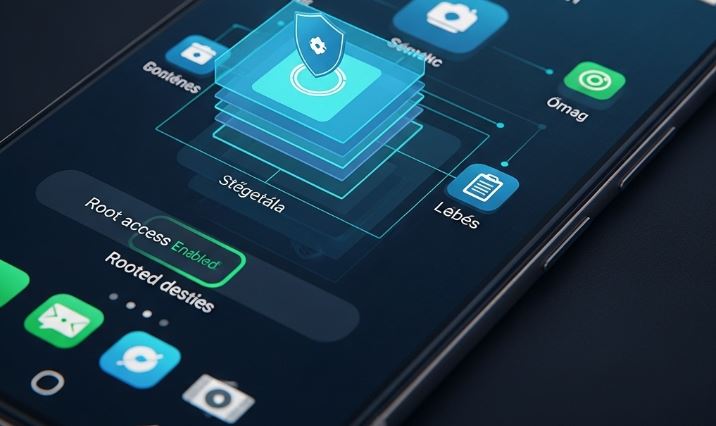
In an age where billions of people are interconnected through platforms like Facebook, the security of our digital identities has never been more pertinent. Many users harbor a lingering question: Can a Facebook account actually be hacked? The straightforward answer is, unfortunately, yes. While Facebook invests heavily in security infrastructure, and hacking isn’t as simple as Hollywood might portray, vulnerabilities exist, often stemming from a combination of sophisticated attack methods and, crucially, human factors.
Understanding „hacking” in the context of Facebook
Before we proceed, it’s important to define what we mean by „hacking” a Facebook account. For the average user, this doesn’t typically involve a direct, brute-force breach of Facebook’s core servers to target a specific individual – such an attack would require immense resources and is highly unlikely for most people. Instead, account compromise usually happens through methods that target the user directly or exploit vulnerabilities in their personal security practices.
These methods range from deceptive psychological tricks to sophisticated malicious software. The goal of the attacker is almost always to gain unauthorized access to an account for various nefarious purposes, such as stealing personal information, spreading malware or disinformation, committing financial fraud, or impersonating the user.
The evolving threat landscape: Why Facebook accounts remain targets
Despite continuous advancements in cybersecurity, Facebook accounts remain attractive targets for several reasons:
- Vast User Base: With billions of active users, Facebook is a target-rich environment. Even a low success rate can yield a significant number of compromised accounts.
- Treasure Trove of Personal Data: Facebook profiles often contain a wealth of personal information, including birth dates, locations, contact lists, personal photos, and details about relationships and interests. This data is valuable for identity theft, social engineering, and targeted attacks.
- Platform for Influence and Deception: A compromised account can be used to spread scams, fake news, or malicious links to the victim’s network of friends, exploiting the trust inherent in those connections.
- Access to Other Linked Accounts: Many people use their Facebook credentials to log into other websites and apps (social login). If a Facebook account is compromised, it can create a domino effect, potentially giving attackers access to other online services.
- Financial Gain: Attackers can use compromised accounts to trick friends into sending money, sell personal data on the dark web, or use linked payment methods for fraudulent purchases.
Common methods attackers use to compromise Facebook accounts
Attackers employ a diverse toolkit of techniques to gain unauthorized access to Facebook accounts. Understanding these methods is the first step towards effective prevention.
1. Phishing and Spear Phishing 🎣
Phishing remains one of the most prevalent and effective methods for stealing login credentials. It involves deceiving users into voluntarily providing their information by impersonating a trustworthy entity.
- How it works: Attackers create fake login pages that look identical to Facebook’s official page. They then distribute links to these pages via emails, direct messages, or even text messages (smishing). These messages often create a sense of urgency or fear, such as „Your account has suspicious activity, log in immediately to verify” or „You’ve won a prize, claim it now!”
- Spear Phishing: This is a more targeted form of phishing where the attacker crafts a message specifically for an individual or a small group, often using personal information gathered from other sources (like a public profile or previous data breaches) to make the scam more convincing. For example, a message might reference a recent event the target attended or a known contact.
- Impact: If a user enters their username and password on a fake page, the credentials go directly to the attacker.
You can learn more about recognizing and avoiding phishing scams from the Federal Trade Commission (FTC), a reliable source for consumer protection information.
2. Malware Infections 💻
Malware, short for malicious software, encompasses various types of intrusive software that can compromise your device and, consequently, your Facebook account.
- Keyloggers: This type of malware secretly records every keystroke you make, including your usernames and passwords. If your device is infected with a keylogger, attackers can easily capture your Facebook credentials when you log in.
- Spyware: Spyware is designed to monitor your activity, collect personal information, and transmit it to attackers without your knowledge. This can include Browse history, login details, and other sensitive data.
- Infostealers (Information Stealers): These are specifically designed to scan infected computers for stored credentials (like those saved in browsers), financial information, and other valuable data, then exfiltrate it to the attacker.
- How it spreads: Malware can be distributed through malicious email attachments, infected software downloads (especially from unofficial sources), compromised websites, or even by plugging in an infected USB drive.
3. Social Engineering 🧠
Social engineering is the art of psychological manipulation to trick users into divulging confidential information or performing actions that compromise their security. It relies on exploiting human trust, curiosity, fear, or greed.
- Pretexting: Attackers create a fabricated scenario (a pretext) to gain the victim’s trust and extract information. For instance, they might pose as a Facebook support representative needing to „verify” account details.
- Baiting: This involves luring victims with a false promise, like a free movie download or a shocking video, which then leads to a malware infection or a phishing site.
- Quid Pro Quo: Attackers offer a supposed service or benefit in exchange for information or access. For example, „Help me test this new game, just log in with your Facebook here.”
- Exploiting Emotional Triggers: Messages designed to evoke strong emotions (fear, excitement, sympathy) can bypass rational thinking, making users more likely to click malicious links or reveal information.
4. Password Attacks 🔑
While Facebook has measures to prevent simple brute-force attacks, weak or reused passwords remain a significant vulnerability.
- Brute-Force and Dictionary Attacks: These involve systematically trying all possible password combinations (brute-force) or using lists of common words and phrases (dictionary attacks). While Facebook implements rate limiting and account lockouts to thwart these, they can still be effective against extremely weak passwords or if credentials are tested against other less secure sites first.
- Credential Stuffing: This is a highly common attack. Attackers obtain lists of usernames and passwords from data breaches on other websites. They then use automated tools to try these leaked credentials on Facebook (and other popular platforms), hoping that users have reused the same password across multiple services. This is a major reason why password reuse is so dangerous.
- Password Guessing: If a user has a weak password based on easily guessable information (like „password123,” pet’s name, birthdate), an attacker who knows them or has gathered information about them might be able to guess it.
Using strong, unique passwords for each online account is crucial. Consider using a reputable password manager to help generate and store complex passwords.
5. Session Hijacking (Sidejacking)
While less common now due to the widespread adoption of HTTPS, session hijacking was once a more significant threat, especially on unsecured public Wi-Fi.
- How it worked: When you log into Facebook, the server creates a „session token” stored in your browser. This token keeps you logged in without needing to re-enter your password for every action. If this communication was unencrypted (HTTP), an attacker on the same network could intercept this session token and use it to gain access to your account.
- Current Status: Facebook uses HTTPS by default, which encrypts the communication between your browser and Facebook’s servers, making session hijacking much more difficult. However, vulnerabilities could still exist if, for instance, a user is tricked into visiting a non-HTTPS part of a site or through certain sophisticated attacks.
6. SIM Swapping (SIM Jacking) 📱
SIM swapping is a more complex but increasingly prevalent attack, especially targeting accounts with SMS-based two-factor authentication.
- How it works: The attacker convinces the victim’s mobile carrier to transfer their phone number to a SIM card controlled by the attacker. They might do this through social engineering of customer service representatives or by using personal information stolen from the victim to impersonate them.
- Impact: Once the attacker controls the victim’s phone number, they can intercept SMS messages, including password reset codes and 2FA codes sent by Facebook. This allows them to reset the Facebook password and take over the account.
- Protection against SIM swapping involves enhanced security with your mobile carrier and using app-based 2FA or security keys instead of SMS where possible. You can find more information on this threat from resources like Krebs on Security, which often covers such security topics in depth.
7. Third-Party Application Vulnerabilities
Many users connect third-party apps and games to their Facebook accounts for convenience or added functionality.
- Excessive Permissions: Some apps request more permissions than they actually need. If a malicious app is granted access to your profile information, friends list, or ability to post, it can abuse this access.
- Vulnerabilities in Apps: Even legitimate apps can have security flaws. If an attacker finds and exploits a vulnerability in a third-party app linked to your Facebook account, they might be able to gain unauthorized access or misuse your data through that app.
- It’s crucial to regularly review the apps connected to your Facebook account and revoke access for any you no longer use or trust.
8. Physical Access and Unattended Devices
Sometimes, the „hack” is as simple as someone gaining physical access to your unlocked phone or computer while you are logged into Facebook. Leaving devices unattended in public places or even at home with untrusted individuals can pose a risk.
9. Exploiting Outdated Software
Vulnerabilities in your operating system (Windows, macOS, Android, iOS), web browser, or other software can be exploited by attackers to install malware or gain control of your device, which can then lead to your Facebook account being compromised. Keeping all your software up-to-date with the latest security patches is essential.
Facebook’s defenses: How the platform strives to protect users
Facebook is acutely aware of these threats and employs a multi-layered security strategy to protect its users and platform. While not infallible, these measures significantly raise the bar for attackers.
- Encryption: Facebook uses HTTPS to encrypt data in transit between your device and its servers. They also work on encrypting data at rest.
- Two-Factor Authentication (2FA): 🛡️ This is one of the most effective security measures. When enabled, logging in requires not only your password but also a second form of verification, usually a code sent to your phone via SMS (though less secure due to SIM swapping risks), generated by an authenticator app (e.g., Google Authenticator, Authy), or a physical security key. Facebook strongly encourages users to enable 2FA.
- Login Alerts: You can enable alerts that notify you via email or in-app notification whenever your account is accessed from an unrecognized device or browser. This allows you to quickly detect and react to unauthorized access.
- Security Checkup: Facebook provides a guided „Security Checkup” tool that helps users review and strengthen their account security settings, including password strength, login alerts, and 2FA.
- Advanced Detection Systems: Facebook utilizes sophisticated AI and machine learning algorithms to detect and block suspicious activities, such as improbable login locations, rapid posting频率, or attempts to send spam or phishing links. These systems can automatically flag or temporarily lock accounts exhibiting such behavior.
- Reporting Mechanisms: Users can easily report suspicious content, profiles, or messages. Facebook has teams dedicated to reviewing these reports and taking appropriate action.
- Bug Bounty Program: Facebook runs a bug bounty program that rewards security researchers for finding and responsibly disclosing vulnerabilities in their platform. This helps identify and fix security flaws before malicious actors can exploit them.
- Trusted Contacts: You can designate a few trusted friends who can help you regain access to your account if you ever get locked out.
- Information on Staying Safe: Facebook provides extensive help pages and resources on how to stay safe, recognize scams, and protect your account.
The human factor: Why users are often the weakest link
Despite robust technical defenses, the human element often remains the most vulnerable point in the security chain. Many account compromises occur not because of a flaw in Facebook’s systems but due to user actions or inactions.
- Weak Passwords: Using simple, easily guessable passwords (e.g., „123456,” „password,” birth dates) makes accounts trivial to compromise.
- Password Reuse: 🔄 Using the same password across multiple websites is a critical mistake. If one of those sites suffers a data breach, your credentials for all other sites using that password become vulnerable.
- Falling for Scams: Humans are susceptible to psychological manipulation. Well-crafted phishing emails or social engineering tactics can trick even cautious users.
- Ignoring Security Best Practices: Many users fail to enable 2FA, ignore login alerts, or don’t regularly review their security settings.
- Oversharing Personal Information: Publicly sharing too much personal information can provide ammunition for social engineers or help attackers guess security questions.
- Clicking Suspicious Links or Downloading Unsafe Files: Curiosity or a moment of carelessness can lead to clicking on a malicious link or downloading malware-infected attachments.
- Using Unsecured Wi-Fi: Connecting to public Wi-Fi networks without a VPN can expose your data to attackers on the same network, especially if websites aren’t properly secured with HTTPS (though this is less of an issue for Facebook itself).
- Granting Excessive App Permissions: Not scrutinizing the permissions requested by third-party apps can lead to data leaks or account misuse.
The aftermath: Consequences of a compromised Facebook account
The repercussions of a hacked Facebook account can range from annoying to devastating:
- Identity Theft: Your personal information can be stolen and used to open new accounts, take out loans, or commit other fraudulent acts.
- Spread of Misinformation or Scams: Your account might be used to post malicious links, scams, or false information to your friends and followers, damaging your reputation and potentially harming others.
- Financial Loss: If your account is linked to payment methods (e.g., for ads or games), attackers might make unauthorized purchases. They could also use your compromised account to trick your contacts into sending them money.
- Reputational Damage: Malicious posts or messages sent from your account can harm your personal and professional relationships.
- Loss of Personal Data and Memories: You could lose access to years of photos, messages, and memories stored on your account. In some cases, attackers might delete your data.
- Blackmail or Extortion: If sensitive private messages or photos are accessed, attackers might try to blackmail you.
- Being Locked Out Permanently: In some severe cases, or if recovery attempts are unsuccessful, you might lose access to your account for good.
Fortifying your fortress: Proactive steps to secure your Facebook account
While the threat of being hacked is real, there are numerous proactive measures you can take to significantly reduce your risk:
- Use a Strong, Unique Password: ✅ Create a complex password that is at least 12-16 characters long and includes a mix of uppercase letters, lowercase letters, numbers, and symbols. Most importantly, ensure this password is unique to your Facebook account. Use a password manager to generate and store these complex passwords securely.
- Enable Two-Factor Authentication (2FA): This is arguably the single most important step. Opt for an authenticator app or a physical security key over SMS-based 2FA if possible, as these methods are more resilient against SIM swapping.
- Be Vigilant Against Phishing and Suspicious Links: 📧 Always scrutinize emails, messages, and links before clicking. Check the sender’s email address and the URL carefully. If in doubt, type Facebook’s address directly into your browser instead of clicking a link. Never enter your login credentials on a page you’re not 100% sure is legitimate.
- Keep Your Software Updated: Regularly update your operating system, web browser, antivirus software, and other applications. These updates often contain critical security patches.
- Review App Permissions Regularly: Go to your Facebook settings and check which third-party apps have access to your account. Revoke access for any apps you no longer use or don’t trust. Be mindful of the permissions new apps request.
- Secure Your Email Account: The email account linked to your Facebook is often the key to resetting your password. Ensure this email account also has a strong, unique password and 2FA enabled.
- Recognize Social Engineering Tactics: Be wary of unsolicited requests for information, offers that seem too good to be true, or messages that try to create a sense of urgency or fear.
- Regularly Review Your Account Activity: Check your login history (available in Facebook’s security settings) for any unrecognized devices or locations. Review your recent posts and messages if you suspect anything amiss.
- Be Cautious on Public Wi-Fi: Avoid logging into sensitive accounts or transmitting personal information on unsecured public Wi-Fi networks. If you must use public Wi-Fi, use a Virtual Private Network (VPN) to encrypt your connection.
- Manage Your Privacy Settings: Configure your Facebook privacy settings to control who can see your posts, friend list, and personal information. Limiting public visibility can reduce the information available to potential attackers.
- Log Out of Unused Sessions: When you finish using Facebook, especially on public or shared computers, make sure to log out completely.
- Educate Yourself and Stay Informed: Cybersecurity threats are constantly evolving. Stay informed about new scams and security best practices.
Damage control: What to do if you suspect your account is hacked
If you suspect your Facebook account has been compromised, acting quickly is crucial:
- Try to Change Your Password Immediately: If you can still log in, change your password to a new, strong, and unique one.
- Use Facebook’s Hacked Account Recovery Tool: Facebook has a dedicated process for recovering hacked accounts. Go to
facebook.com/hackedand follow the instructions. You may be asked to identify recent activity or confirm your identity. - Revoke Access for Suspicious Apps: Check your authorized apps and remove any you don’t recognize or trust.
- Check Your Login Activity: Look for any unrecognized devices or login locations. Facebook allows you to log out of all active sessions remotely.
- Inform Your Friends and Family: Let your contacts know that your account may have been compromised so they don’t fall for any scams or malicious links sent from your account.
- Scan Your Devices for Malware: Run a full scan with reputable antivirus and anti-malware software to ensure your devices are clean.
- Review Recent Activity: Check for any posts, messages, or friend requests made without your knowledge and delete/undo them.
- Update Your Security Information: Once you regain control, ensure your recovery email address and phone number are correct and secure, and re-enable 2FA if it was disabled.
- Report to Facebook: Even after regaining access, report the incident to Facebook so they can investigate.
Conclusion: Vigilance is key in an interconnected world
So, can a Facebook account be hacked today? Yes, it absolutely can. While Facebook implements robust security measures, the persistence and ingenuity of attackers, coupled with the ever-present potential for human error, mean that no online account is completely impenetrable.
However, this doesn’t mean you should live in constant fear. By understanding the common attack vectors, utilizing the security features provided by Facebook (especially two-factor authentication), and adopting strong personal security habits, you can significantly reduce your vulnerability and make yourself a much harder target. The security of your Facebook account is a shared responsibility: Facebook provides the tools, but you must use them wisely and remain vigilant. In the digital realm, an ounce of prevention is truly worth a pound of cure. Stay informed, stay cautious, and take control of your online safety. 🔒















